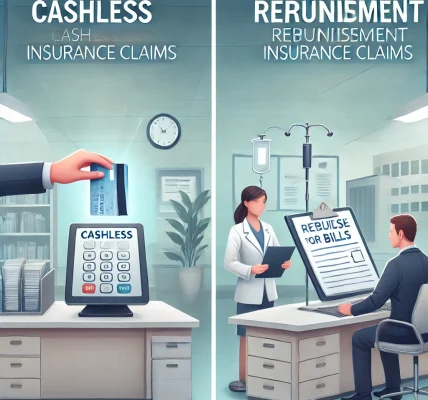Filing an insurance claim can be a complex process, and even a small mistake can lead to delays, reduced payouts, or outright denials. Understanding the common pitfalls and how to avoid them can help ensure a smooth claims process while maximizing your rightful compensation. In this guide, we’ll walk you through the most frequent mistakes policyholders make and provide expert strategies to prevent them.
1. Delaying the Filing of a Claim
Why This Is a Mistake:
Many insurance policies have specific timeframes within which claims must be filed. Waiting too long to report an incident can lead to claim denial or unnecessary complications in proving your case.
How to Avoid It:
- Review your policy’s claim filing deadlines.
- Report incidents to your insurer as soon as possible.
- Keep all records, including the date and time of the incident and when you reported it.
2. Providing Incomplete or Inaccurate Information
Why This Is a Mistake:
Insurance companies rely on detailed information to process claims. Any missing or incorrect details can delay the process or lead to a lower payout.
How to Avoid It:
- Double-check all forms before submission.
- Provide detailed, honest, and accurate information about the incident.
- Keep copies of all submitted documents.
3. Failing to Document the Damage Properly
Why This Is a Mistake:
Without clear evidence, it may be difficult to justify the extent of the damages, which could result in a lower settlement or a denied claim.
How to Avoid It:
- Take clear, high-resolution photos and videos of the damage from multiple angles.
- Record the date and time of the photos and videos.
- If applicable, collect witness statements.
4. Not Keeping Copies of Important Documents
Why This Is a Mistake:
Losing important documents can slow down the claims process and make it difficult to verify the details of your claim.
How to Avoid It:
- Maintain both physical and digital copies of claim forms, receipts, medical reports, and correspondence with your insurer.
- Use cloud storage or external drives for backup.
5. Accepting the First Settlement Offer Without Review
Why This Is a Mistake:
Insurance companies may offer a quick settlement that is lower than what you are entitled to.
How to Avoid It:
- Review the settlement offer carefully before accepting.
- Compare it with repair estimates or medical expenses.
- If needed, consult a public adjuster or insurance expert.
6. Not Understanding Policy Coverage and Exclusions
Why This Is a Mistake:
Many policyholders assume certain damages are covered, only to find out later that their policy excludes them.
How to Avoid It:
- Read your policy thoroughly and clarify doubts with your insurer.
- Ask for a simplified explanation if necessary.
- Check coverage limits, exclusions, and deductibles.
7. Failing to Follow Up Regularly
Why This Is a Mistake:
If you don’t follow up on your claim, it may get delayed or deprioritized by your insurer.
How to Avoid It:
- Keep track of claim progress by regularly contacting your insurance provider.
- Request updates in writing for documentation.
- Stay organized with a claims diary.
8. Signing Documents Without Reading Them Carefully
Why This Is a Mistake:
Signing documents without understanding them can lead to agreeing to unfavorable terms or missing out on entitled benefits.
How to Avoid It:
- Read all documents carefully before signing.
- If in doubt, seek professional advice.
- Ask your insurer for clarification on unclear terms.
9. Exaggerating or Inflating Claims
Why This Is a Mistake:
Providing false information to maximize your payout can result in a denied claim and legal consequences.
How to Avoid It:
- Always be honest and accurate when describing damages or losses.
- Provide verifiable proof, such as receipts and photos.
- Understand that insurers investigate claims thoroughly.
10. Not Seeking Professional Help When Needed
Why This Is a Mistake:
Handling a complex claim alone may lead to errors, underpayments, or unnecessary delays.
How to Avoid It:
- Consult a public adjuster for large or disputed claims.
- Seek legal assistance if your claim is wrongfully denied.
- Use an independent appraiser for property damage assessments.
11. Communicating Poorly with Your Insurer
Why This Is a Mistake:
Miscommunication or lack of clarity can result in misunderstandings and unnecessary claim rejections.
How to Avoid It:
- Keep a record of all calls and emails with your insurer.
- Clearly explain the incident and damages.
- Respond promptly to insurer requests.
12. Paying for Repairs Before Getting Approval
Why This Is a Mistake:
If you repair damages before your insurer inspects them, they might not reimburse you fully.
How to Avoid It:
- Wait for approval before making major repairs.
- If emergency repairs are needed, document everything and notify your insurer immediately.
13. Not Filing a Police Report When Required
Why This Is a Mistake:
Some claims, such as theft or accidents, require an official police report. Failing to file one may lead to claim rejection.
How to Avoid It:
- Always check if a police report is necessary.
- File a report as soon as possible.
- Keep a copy of the report for your records.
14. Assuming Your Claim Will Be Processed Automatically
Why This Is a Mistake:
Insurance claims require active participation from the policyholder. Assuming the process is automatic can lead to unnecessary delays.
How to Avoid It:
- Be proactive in submitting all required documents.
- Follow up regularly with your insurer.
- Keep track of claim deadlines.
15. Ignoring Dispute Resolution Options
Why This Is a Mistake:
If your claim is unfairly denied or undervalued, failing to appeal or dispute the decision can result in lost compensation.
How to Avoid It:
- Understand the appeal process outlined in your policy.
- Provide additional supporting documents if necessary.
- Seek assistance from a claims advocate or legal expert if needed.
Final Thoughts
Filing an insurance claim doesn’t have to be a frustrating process. By avoiding these common mistakes and taking a proactive approach, you can improve the chances of a fast and fair settlement. Always ensure that you read your policy thoroughly, provide accurate information, document everything carefully, and maintain clear communication with your insurer.
By following these best practices, you can navigate the insurance claims process smoothly, ensuring you receive the compensation you deserve while staying compliant with all legal and policy requirements.




